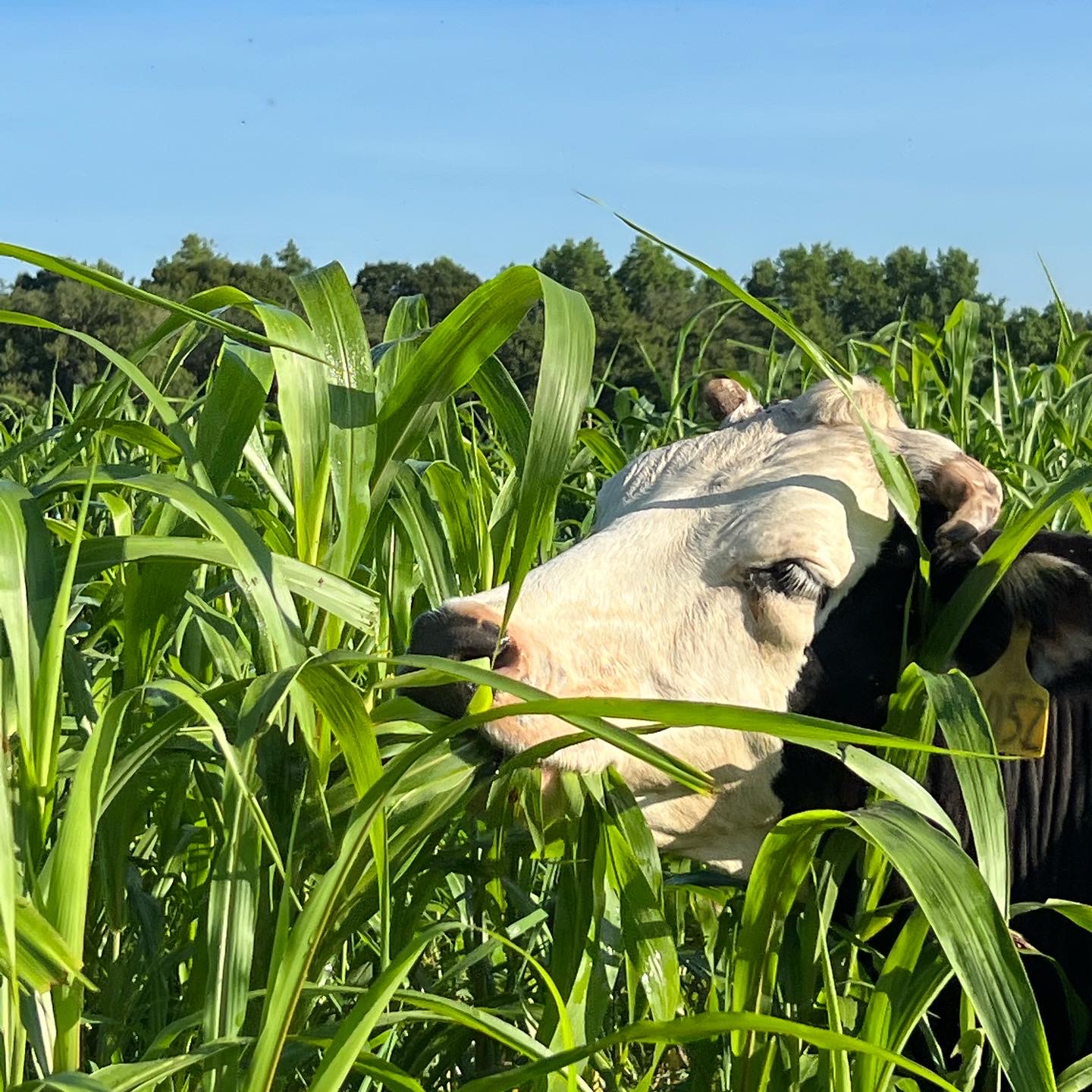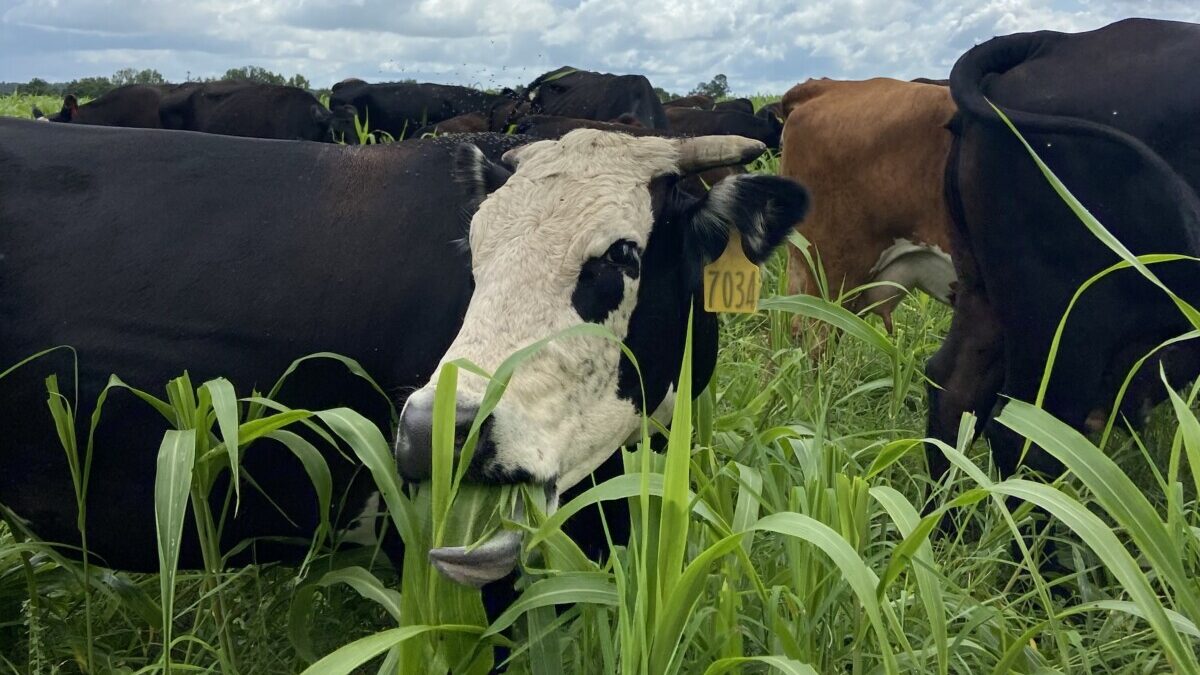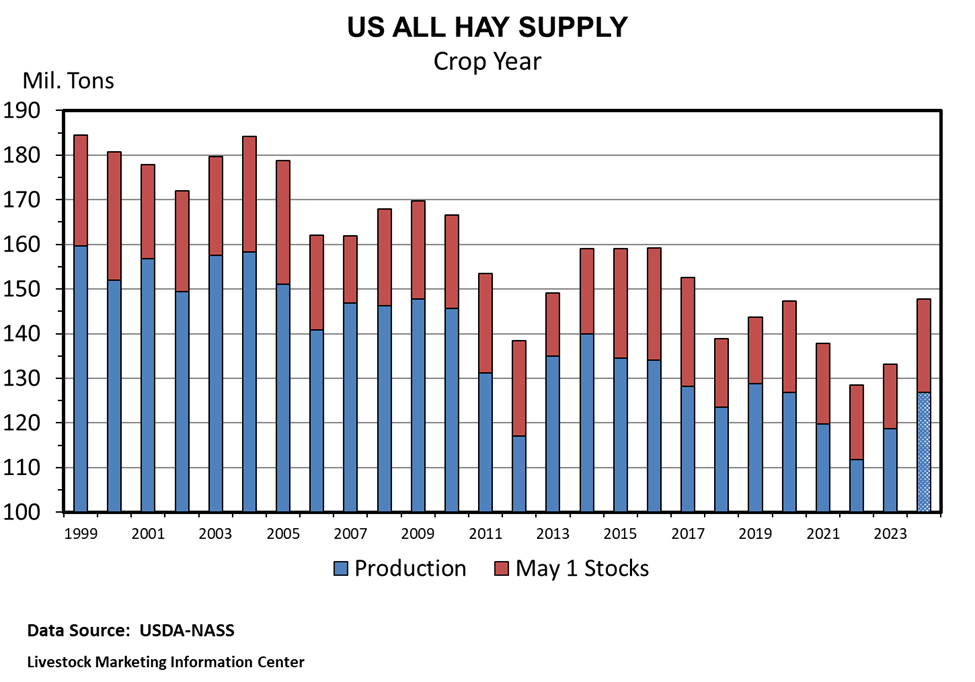forages
-

Samantha Shackelford The 2025 UGA Corn Silage & Stored Forage Field Day was held on the University of Georgia Tifton Campus on June 12. Click below to learn more about this event.
Posted in: Forages -

Jennifer Tucker, Ph.D. Planting summer annual forage grasses is yet another tool in our toolbox to help extend the grazing season and provide forage during environmental stressors. Click below to access this article and learn more about effective use of summer annual grasses in Georgia.
Posted in: Forages -

Lisa Baxter and Taylor Singleton Annual forages are an excellent tool for bridging the production gaps left by perennial forages systems. In this article you will find an overview of planting guidelines, planting methods, grazing and past management recommendations for summer annuals. (Photo: Shauni Nichols)
Posted in: Forages -

Jennifer Tucker, Ph.D. Explore options to optimize winter forage systems, reduce reliance on stored feed, and boost herd performance with practical winter grazing strategies. Click the link below to access the article.
-

Lawton Stewart, Ph.D. Are your cattle getting enough Vitamin A this winter? With the decrease in Vitamin A in conserved forages like hay, it’s essential to assess Vitamin A supplementation needs before deficiencies impact performance. Read this article for practical insights and solutions.
-

William Secor, Ph.D. It feels like some kind of weather event has been affecting Georgia beef cattle markets every few months this year. This article provides some basic concepts about Pasture, Rangeland, and Forage insurance for beef cattle producers.
-

Lisa Baxter, Ph.D. As the weather in the state gradually starts to change, it is important to have a game plan when it comes to forage management this fall. Click below to access Dr. Lisa Baxter’s article that includes a fall forage management checklist.
-

William Secor, Ph.D. Georgia’s weather has been a roller coaster this summer. Forage producers have contended with drought conditions and excessive rain at different times this year. Amid these challenges, what is the forage outlook for this year in Georgia? And, how is the rest of the country faring? Access the article to learn more.
-

Lisa Baxter, Ph.D. Most tall fescue stands found in Georgia have a fungus that lives in the plant and can be transmitted in the seed. This endophyte has some benefits including pest resistance, drought tolerance, and persistence under grazing. However, the wild- or native-type endophyte (E+) produces toxins called ergot-alkaloids that can cause cattle to…
-

Jennifer Tucker, Ph.D. Attend any forage focused Extension program and you will assuredly discuss the importance of soil fertility, forage quality, having a forage plan, and utilizing proper seeding and planting practices. Each of these are key fundamentals to efficient and effective forage management and utilization and should not be overlooked in this article. A…
